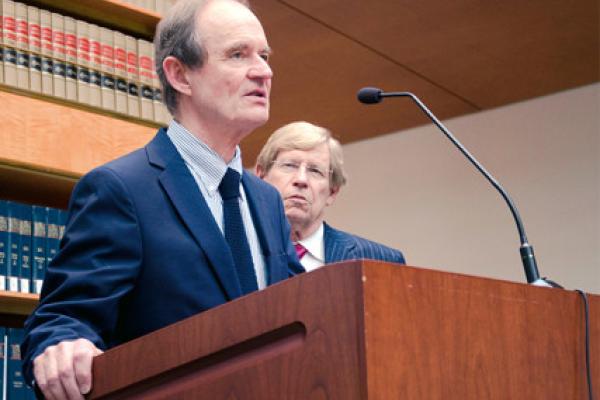A federal appeals court panel in Virginia became the second one this summer to strike down a state ban against same-sex marriage Monday, making it more likely that the Supreme Court will settle the issue as early as next year.
“We recognize that same-sex marriage makes some people deeply uncomfortable,” said Judge Henry Floyd, originally appointed a district judge by George W. Bush and elevated to the circuit court by President Obama. “However, inertia and apprehension are not legitimate bases for denying same-sex couples due process and equal protection of the laws.”
The circuit court has jurisdiction over Virginia, Maryland, West Virginia, North Carolina and South Carolina. The panel’s decision will not take effect until at least Aug. 18 while circuit clerks defending the state’s ban decide whether to appeal to the full appellate court or the Supreme Court.
Like the first appeals court panel to rule on the issue this year in Utah and Oklahoma, the three-judge panel was deeply divided.
Read the Full Article

